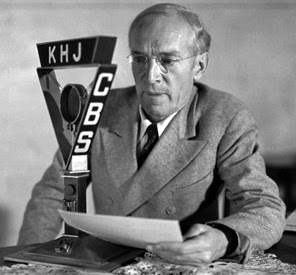Germanwatch rates Brazil among best environment-improving countries
CBC News
Canada is the fourth worst out of 57 countries evaluated for their performances in helping halt climate change, according to a report released Monday.
------------------------------------------------------------------------------
 |
| The top ten and bottom ten performing countries on the Climate Change Performance Index (CCPI), published annually by Germanwatch and CAN-Europe to rank the efforts to combat climate change of the 57 industrialized countries and emerging economies that together account for more than 90 per cent of global energy-related CO2 emissions. The ranking system factors in three scores: the emissions level (CO2 per primary energy unit, primary energy unit per GDP, and primary energy unit per capita); the emissions trend (whether emissions are rising or falling), and a subjective rating of the nation's national and international climate policy. Tall bars indicate a higher ranking, and thin bars represent a poor ranking. None of the 57 countries were doing enough to keep global warming below 2°C, so the top three spots on the list were left blank. Image credit: Germanwatch.org. |
-----------------------------------------------------------------------------------
Saudia Arabia, followed by Kazakhstan and Australia, respectively, are the worst performers in the sixth annual index released by the research organization Germanwatch at the United Nations' climate change conference in Cancun, Mexico.
Germanwatch and project partner Climate Action Network Europe say no country is doing enough to stay below a 2 C average global warming limit. (CBC)The index is based on an analysis of national priorities by experts in their respective countries, including how well they control greenhouse gas emissions and the strength of their climate policies.
Germanwatch and project partner Climate Action Network Europe (CAN Europe) leave the first three spots open — reserved for countries that are doing enough to stay below a 2 C average global warming limit — arguing that no country has achieved that goal.
However, it gives Brazil, Sweden and Norway fourth to sixth spots, respectively, followed by Germany, in terms of their positive performances.
Matthew Bramley, director of the climate change program at the Pembina Institute, which helped evaluate Canada for the performance index, said its ranking looks especially poor compared to Norway, another colder country that also exports oil and gas.
Half of each country's mark is based on its emissions trend over time, 30 per cent is based on current emissions levels, while 20 per cent is based on government policies.
Canada moves up
Last year, Canada ranked 56th out of 57 countries evaluated. Its improved showing this year is not due to improved performance, but rather to the slipping performance of Australia and Kazakhstan, Bramley said in a blog posted Monday.
It's not clear whether Canada's greenhouse gas emission regulations for cars and light trucks are stringent enough to make a difference, says Matthew Bramley, director of the climate change program at the Pembina Institute. (Canadian Press)He said Canada's poor showing is the result of its high emissions in relation to its population and economy. He also blames domestic policies.
"The federal government recently finalized its first greenhouse gas emission regulations, which apply to cars and light trucks," Bramley writes. "But it's not clear that the regulations are stringent enough to make a difference relative to what would have happened without them. Another critical example is Canada's continued lack of an emissions tax or cap-and-trade system that would put a price on emissions broadly in the economy."
The world's two biggest emitters, China and the United States, have dropped a few ranks compared to last year, with China now ranking 53rd and the U.S. 51st.
"China has recently started improving its national climate policies, including legislation on renewable energy, which has already made it the world leader in wind energy investments," Matthias Duwe, director at CAN Europe, said in a release. "This represents a trend toward strong national climate policy that we have seen throughout the CCPI this year."
But since the index gives more weight to emissions than policy, China's ranking was lowered from last year. The index's authors expressed hope that improvement of China's national climate policy would lower its emissions trend in the future and raise its ranking accordingly.
Germanwatch said the United States' lower ranking is the result of the Senate's blockage of climate legislation, and a poor performance on per-capita emissions and climate policy.
Read more:
http://www.cbc.ca/technology/story/2010/12/06/tech-climate-change-ranking.html#ixzz17OtpfI61









































